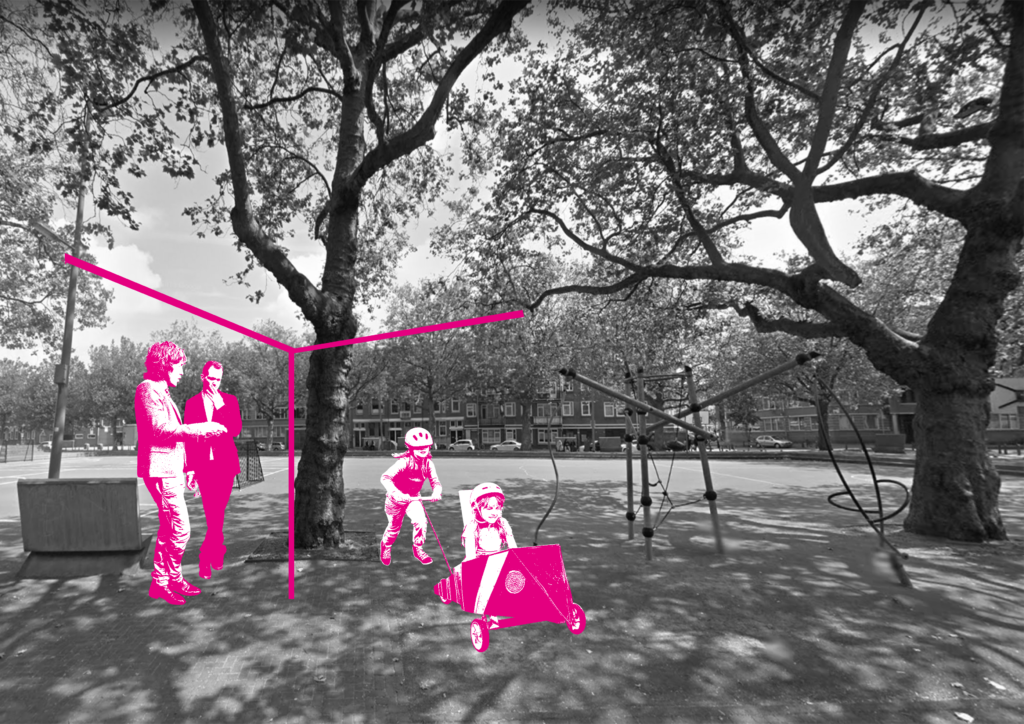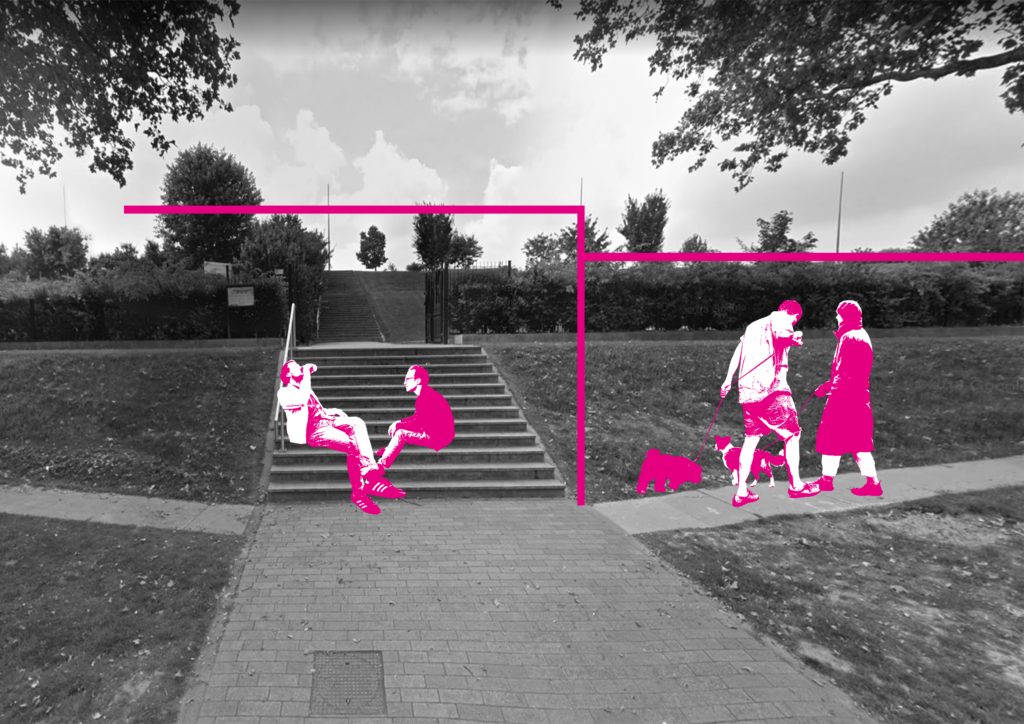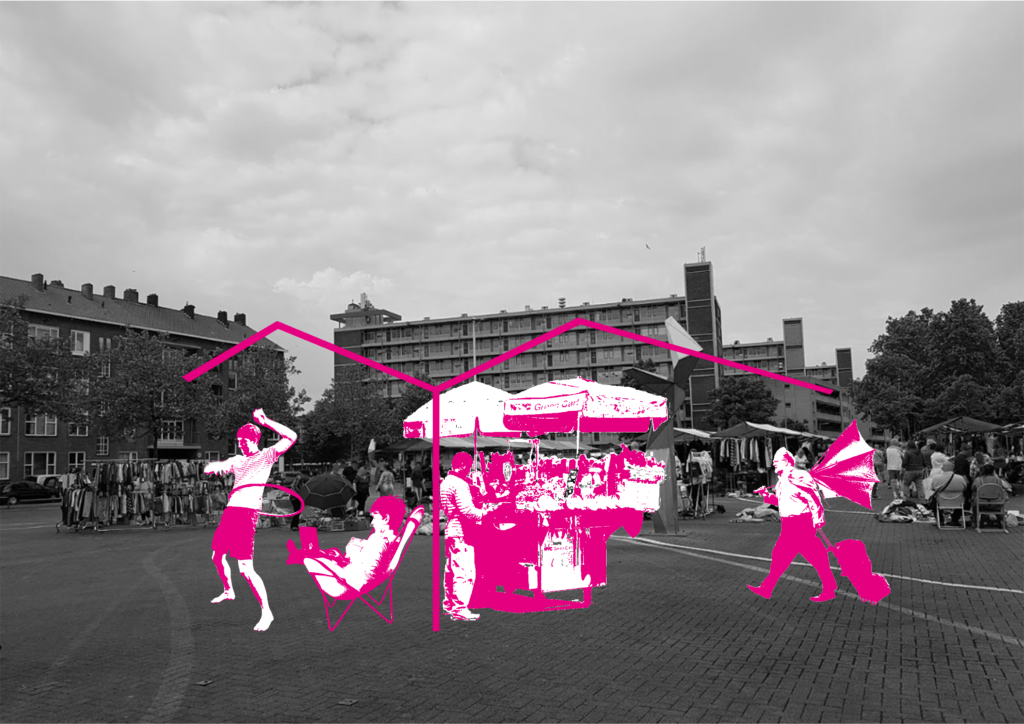Any enclosed or unenclosed land where there is no building or less than 1/20 of the property has a building, and the remaining land is used as a park, entertainment place, waste or unused areas.
“Open space” was first defined in Open Space Act
What do the residents need in the open space?
Bospolderplein
- Function: The facilities are complete in the playground, including the basketball playground, the fitness equipment, the children reaction facilities, the garden.
- Target group: The Target group includes children, teenagers, young people, dog walkers
- Social activities: children playing, parents chatting, teenagers/young people doing sports, walking dogs in the garden, graffiti on the open field
- Advantages: multiple activities, multiple target group
- Disadvantage: social activities only exist on sunny days

How to maintain the social activities in bad weather?
Dakpark
- Function: The facilities fields are independent and clearly distinguished ( greenway, footpath, children reaction park, forest space, urban landscape, fountain square)
- Target group: residents from the whole Rotterdam
- Social activities: related sports(stretching on the railing, running around the footpath), walking, viewing, children playing, parents chatting
- Advantage: multiple activities, multiple target group, the function of each open space is clear and not affecting each other, the influenced range is the whole Rotterdam
- Disadvantage: social activities only exist on sunny days

How to foster the social activities in bad weather?
Grote Visserijplein
- Function: field for regular open market
- Target group: served for the customers who are mostly residents in Rotterdam
- Social activities: shopping, eating, meet with friends
- Advantage: a large number of participants, fixed participants
- Disadvantage: the market only being held twice per week, most time the field is idle
How to keep activities happening in no-events time
